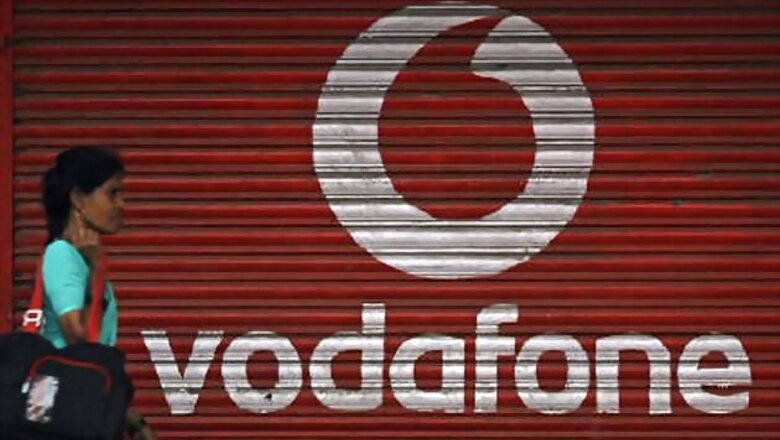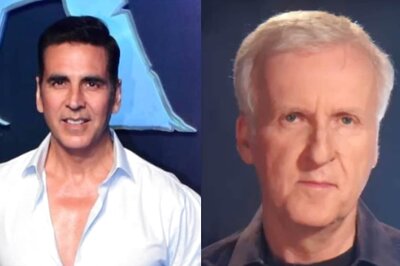
views
London/Mumbai: Vodafone Chief Executive Vittorio Colao ramped up the rhetoric in his fight with the Indian government on Tuesday, accusing the country of deterring foreign investment but warning that he would not walk away.
The result, the company said, was that it was now unlikely to float shares in the business this year.
"There has been widespread concern in India and in the world about this," Colao said. "It is time for the political leadership of the country to look their bureaucrats in the eye and ask whether this is what they want for their country."
Britain-based Vodafone, the biggest overseas corporate investor in India, has repeatedly clashed with the Indian authorities over a string of tax and regulatory issues since it bought into the country in 2007.
Having won a high-profile Supreme Court ruling that cleared it of any need to pay tax on the 2007 transaction, the government simply announced retrospective legislation that would change the rules.
India, crucial to Vodafone's strategy of chasing growth in emerging markets, has also imposed high costs on spectrum airwaves.
And this month it appeared to up the stakes by releasing a report on plans to tackle corruption and black-money, and naming Vodafone as a culprit.
"The very concept of associating Vodafone to black money is ridiculous," Colao told reporters in London as the group published full-year results highlighting the importance of emerging markets to offset the slower growth in Europe.
"We bought a company in India, we invested in India, we have made no capital gain in India, and we won a Supreme Court case in India. So I don't see anything black here," he said, appearing increasingly annoyed.
Asked if Vodafone was between a rock and a hard place, due to its reliance on India for growth, the Italian replied: "We are a pretty hard rock ourselves. We'll see."
Foreign investment
Vodafone, the largest mobile operator in the world, has grown quickly since entering India, but its five-year, $2.2 billion tax battle has come to symbolise the perils foreign firms face doing business in the country.
The company said in April it had threatened the Indian government with arbitration proceedings.
The earlier Supreme Court victory had been hailed by business groups as a sign of an improving climate for foreign investment, and the many twists and turns have been closely watched by the business community.
But the tax battle is merely the most high-profile issue faced by Vodafone.
While its Indian unit became the country's second-largest mobile carrier by revenue, it was forced to take an impairment charge of $3.6 billion in 2010 due to cut-throat competition and escalating spectrum costs.
Marten Pieters, chief executive of Vodafone India, said on Tuesday the group had started preparing for an IPO, but added uncertainty over the rules and pricing of the latest spectrum auction meant it was unlikely to go ahead this year.
"We would also need some certainty around the valuation of the business and, of course, pricing and availability of spectrum is a very important issue for every operator," he said.
Carriers, including market leader Bharti Airtel, Vodafone India and Idea Cellular, have condemned the regulatory changes proposed last month, saying they would add billions of dollars to their costs and hurt profit.
The Telecom Regulatory Authority of India (TRAI) has proposed starting prices for a new airwaves auction of nearly 10 times the amount companies paid in 2008.
Nick Read, the head of Vodafone's emerging market business, told reporters in London the company would struggle to develop a business case in certain parts of the country if the spectrum prices went ahead unchanged.
"We think it is exceptionally high pricing that is not good for the industry or the country, and would have significant ramifications on pricing for consumers," he said.
Asked about the chances for an IPO, Read laughed.
"Clearly, with the tax situation where it is and the regulatory environment where it is, it wouldn't be appropriate for us to be talking about an IPO," he said. "But we want to IPO that business."

















Comments
0 comment